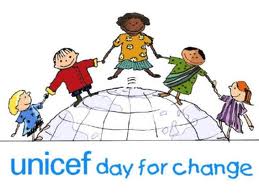At our assembly, yesterday, we had a visitor from the Boy’s Brigade. Ian, a development officer, with the organisation told us all about the fun things you can do when joining. He also showed us a power point presentation about the water cycle and how you can help to support the environment by reducing the amount of water you use on a daily basis.
Here are some fascinating water facts:
- Our bodies are made up of 65% water.
- Our world’s surface is two-thirds covered in water.
- 80% of the human brain is water.
- Water is made up of a mixture of Hydrogen and Oxygen and the chemical name for water is H(2)O – which represents two Hydrogen atoms and one Oxygen atom.
- Water takes on three different forms:
1.) Solid – frost , snow, ice.
2.) Liquid – rain, lakes, oceans, streams, ponds and rivers.
3.) Gas – water vapour.
Not all children in the world have access to clean drinking water. The UN Convention on the Rights of the Child states that every child has ‘the right to the best health care possible, safe water to drink, nutritious food, a clean and safe environment, and information to help you stay well’ (Article 24).










